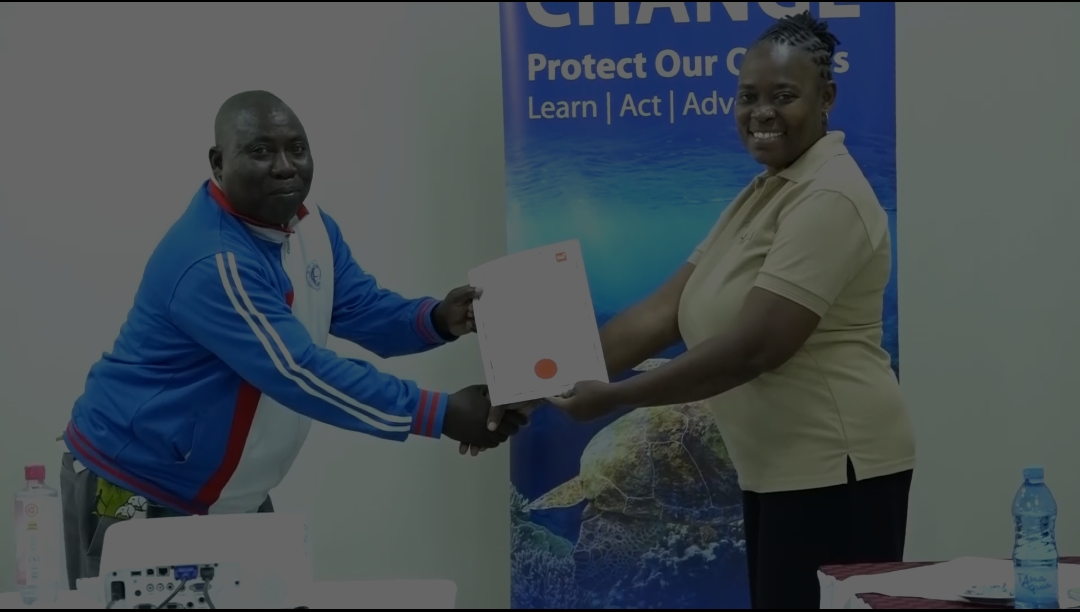
By Ben Okweingoti
Organizations tackling climate change have turned to schools and churches to sensitize coastal communities on the urgent need to protect the environment and marine ecosystems.
The initiative, spearheaded by FIDA International in partnership with the Intergovernmental Oceanographic Commission of Africa (IOC Africa) under UNESCO, is rolling out an ambitious ocean literacy program aimed at empowering Kenya’s coastal communities to safeguard the ocean.
Kenya’s Coast, home to a vast shoreline and rich marine biodiversity, faces mounting threats from pollution, habitat loss, and declining fish stocks. Yet for years, many local communities had little awareness of conservation. To bridge this gap, the program has enlisted teachers and faith leaders as grassroots ambassadors of change.
Since March this year, 10 teachers and eight church leaders drawn from five coastal counties have been trained on ocean literacy by Bahari Hai, a marine conservation organization. They have since cascaded the knowledge to their schools, churches, and wider communities.
According to Elisha Gura, Programs Manager at FIDA International Kenya, the choice of teachers and clergy was deliberate.
“Faith leaders are trusted voices, and teachers shape the next generation. Together, they are driving a new movement for marine conservation in coastal Kenya,” said Gura during a two-day feedback seminar in Malindi.
He explained that the initiative is fostering child-led environmental clubs, church-based conservation groups, and coastal clean-ups. “By combining science, faith, and education, we are raising environmentally conscious youth and resilient communities who can actively protect our coastline,” he added.
The program aligns with UNESCO-IOC Africa’s Ocean Decade priorities, including building a sustainable ocean economy, ecosystem restoration, youth empowerment, and equitable access to ocean knowledge.
Merceline Mkambe, a teacher at Happy House School in Watamu, said her students have embraced the campaign enthusiastically.
“After the training, I formed an environmental club with 25 learners. They are now studying mangrove species, their importance, and have even participated in mangrove planting,” she said.
Church leaders are also taking the message to congregations. Bishop Daniel Kang’ethe of Full Gospel Churches of Kenya, Malindi District, said his members are now integrating ocean care into their daily lives.
“During sermons, we preach the importance of conserving the environment, and our people are planting mangroves and protecting marine habitats,” he said.
Bahari Hai’s Environmental Education Coordinator, Queen Elizabeth, noted that churches offer powerful grassroots networks. “The strength lies in Sunday schools and how ocean literacy is integrated into their programs,” she observed.
With schools and churches at the frontline, the program is not only sparking awareness but also cultivating a conservation culture that may secure the future of Kenya’s coastal ecosystems.